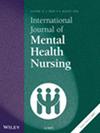Graduate nurses are now comprehensively prepared in Australia and have limited mental health knowledge and experiences to work in acute mental health settings. As such, graduate nurses would need the support that they can get from their respective mental health services to progress from novice to advanced beginner. Nursing education is an important support for graduate nurses to develop the knowledge and skills required for them to transition successfully into acute mental health settings. This study explored 12 graduate nurses' experiences with the nursing education of one mental health services in Western Australia. Q methodology was the approach chosen to conduct this study as it is a ‘ready-to-use’ mixed method research approach that can enable the researchers to obtain in-depth and accurate understanding of the researched topic. Data analysis generated four factors which revealed that nursing education needs to: (1) be tailored to the area of speciality for graduate nurses who experience challenges of being accepted by their nursing team; (2) provide advanced specialist mental health training for graduate nurses who have low self-confidence about their mental health nursing knowledge and skills to practice in acute mental health settings; (3) provide clinical supervision for graduate nurses who experience challenges to apply their mental health knowledge and skills to difficult clinical situations; and (4) change the way mental health education and training are delivered for graduate nurses who feel confident with their mental health knowledge and skills and accepted by their nursing team. The findings of this study highlighted the usefulness of Q methodology in nursing research. The findings of this study can be used by nurse educators to provide more individualised education and training for graduate nurses. Future research will be conducted to test the use of different teaching and learning approaches for the different categories of graduate nurses in acute mental health settings and develop evidence-based nursing education.


